Picture this: you’re all set for that 10-mile run in the morning. You’ve got your shoes and workout clothes ready, your hydration plan lined up—it should be an amazing success!
The only problem is…you don’t know what to eat the night before a long run. Sure, carbs are important for fueling a long race, but how much?
What about protein and fat?
For runners with big goals to reach on race day (or even just have an enjoyable time running!), figuring out what to eat can give some serious anxiety.
Don’t worry though–you’re in luck.
In this blog post we’ll break down everything you need to know about properly prepping your body with food before hitting that start line so you can perform at your highest level!
Carbs
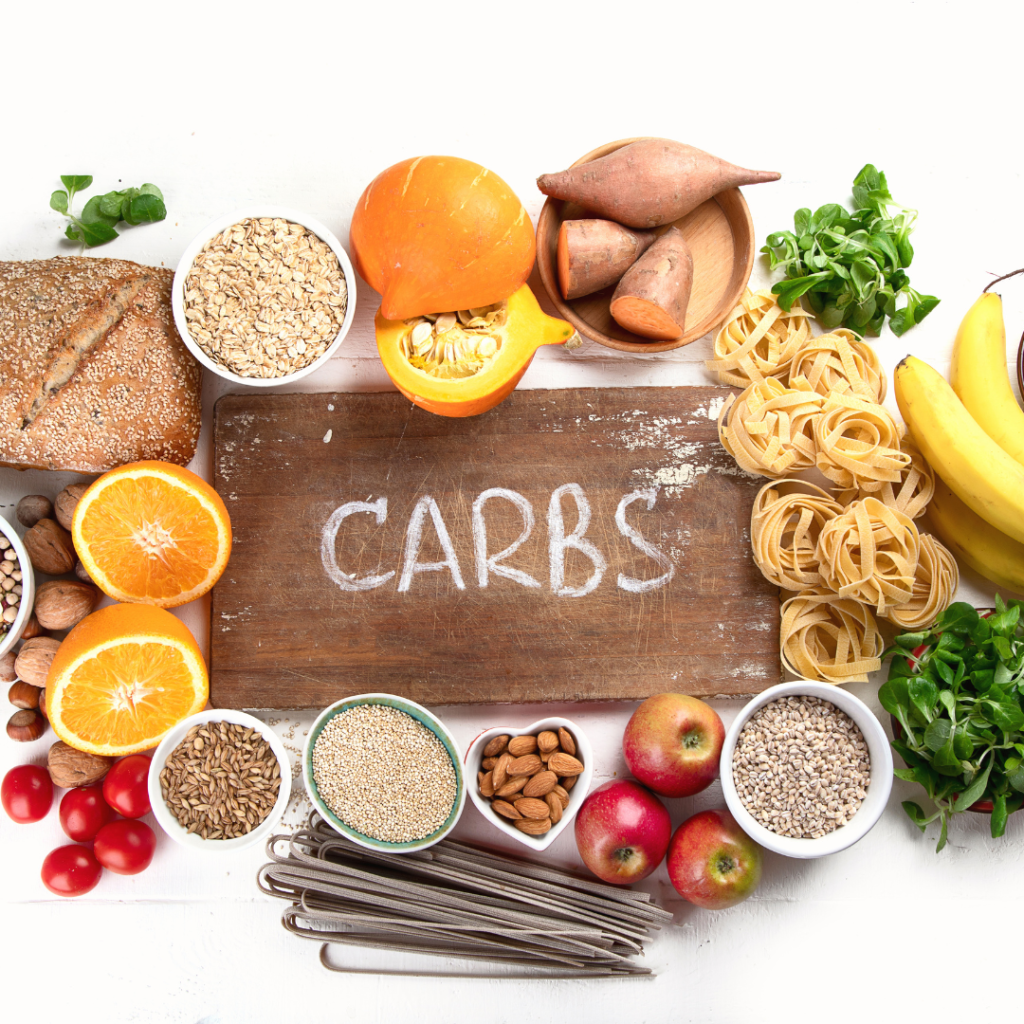
Carbohydrates are the most important macronutrient and an essential part of a healthy lifestyle.
That may seem like a lot of pressure just being put on carbs, however, they are absolutely everywhere!
They can be found in bread, pastries, fruits, vegetables, dairy products and even candy.
And let’s not forget about all those processed snack items that have carbs galore!
Nope, there is no escaping them.
When it comes to carbohydrates it’s all about choosing the right ones.
Reach for foods that have lots of fibre or complex carbohydrates over simple sugars because these will provide you with long-lasting energy instead of a quick spike followed by the inevitable crash!
Why Are Carbs Important?
Carbohydrates are crucial for runners for several reasons, both from a physiological and biochemical standpoint.
They serve as the primary source of fuel for our bodies during high-intensity and endurance activities like running.
This is because carbohydrates can be quickly and efficiently broken down into glucose, which is the body’s preferred energy source, particularly for the working muscles during running.
Let’s delve deeper into the scientific rationale behind the significance of carbohydrates for runners.
In terms of cellular respiration, carbohydrates play a vital role in providing the necessary substrate for energy production.
When carbohydrates are consumed, they are broken down into their simplest form, glucose, which is then absorbed into the bloodstream.
This process results in a rise in blood sugar levels, signaling the pancreas to secrete insulin, a hormone that helps transport glucose into the cells.
Inside the cells, glucose undergoes glycolysis, generating pyruvate and adenosine triphosphate (ATP), the primary energy currency of the body.
Through subsequent processes like the Krebs cycle and oxidative phosphorylation in the mitochondria, more ATP is produced, providing energy for running and other physical activities.
During high-intensity exercise, such as running, the body’s demand for energy increases rapidly.
Our muscles primarily rely on glycogen, the stored form of carbohydrates, as fuel.
Glycogen is efficiently broken down into glucose, providing a quick and plentiful supply of energy.
When glycogen stores become depleted, muscle fatigue and a decrease in athletic performance occur, a phenomenon commonly known as “hitting the wall” or “bonking” in endurance sports.
Therefore, consuming adequate carbohydrates before and during exercise can help maintain glycogen stores, delaying fatigue, and enhancing endurance.
Furthermore, carbohydrates are essential for optimal brain function. The brain exclusively relies on glucose as its energy source, with about 20% of the body’s total energy needs being allocated to brain function.
Maintaining blood sugar levels during prolonged running is crucial for proper cognitive function and decision-making.
The depletion of blood sugar levels during endurance activities can lead to hypoglycemia, causing symptoms such as dizziness, confusion, and impaired mental function, which can impact a runner’s performance and safety.
The availability of carbohydrates during exercise also plays a role in protein sparing.
If an individual’s diet lacks sufficient carbohydrates, the body may turn to other sources for energy, such as breaking down proteins in muscles for fuel.
This process, known as catabolism, can lead to muscle loss and weaken a runner’s overall health and performance.
Consuming carbohydrates ensures that muscles have sufficient fuel without relying on protein breakdown to meet energy demands.
Complex And Simple Carbs
Complex carbohydrates, also known as polysaccharides, are composed of long chains of sugar molecules linked together.
These carbohydrates are found in a variety of plant-based foods, including whole grains, legumes, and vegetables.
Due to their intricate structure, complex carbohydrates take longer for the digestive system to break down, resulting in a slow and steady release of energy.
This characteristic makes them an essential part of a well-balanced diet, as they help to maintain stable blood sugar levels, support digestive health, and provide long-lasting energy throughout the day.
Some common examples of complex carbohydrates are whole grain breads and cereals, brown rice, quinoa, beans, lentils, peas, and starchy vegetables like potatoes and corn.
These foods provide an array of vital nutrients, such as dietary fiber, vitamins, and minerals.
The presence of dietary fiber, in particular, is crucial for promoting healthy digestion, reducing cholesterol levels, and contributing to weight management, as it induces a feeling of fullness and prevents overeating.
Simple carbohydrates, on the other hand, are composed of short chains of sugar molecules or just single sugar units.
These carbohydrates, also known as monosaccharides and disaccharides, are found in various natural and processed foods, like fruits, milk, and candy.
Simple carbohydrates are digested quickly by the body, causing a rapid spike in blood sugar levels and a subsequent boost in energy.
However, this boost in energy is short-lived, as the body depletes these energy sources quickly.
Examples of simple carbohydrates include table sugar, honey, syrup, fruit juices, and various processed snacks like cookies and cakes.
Protein
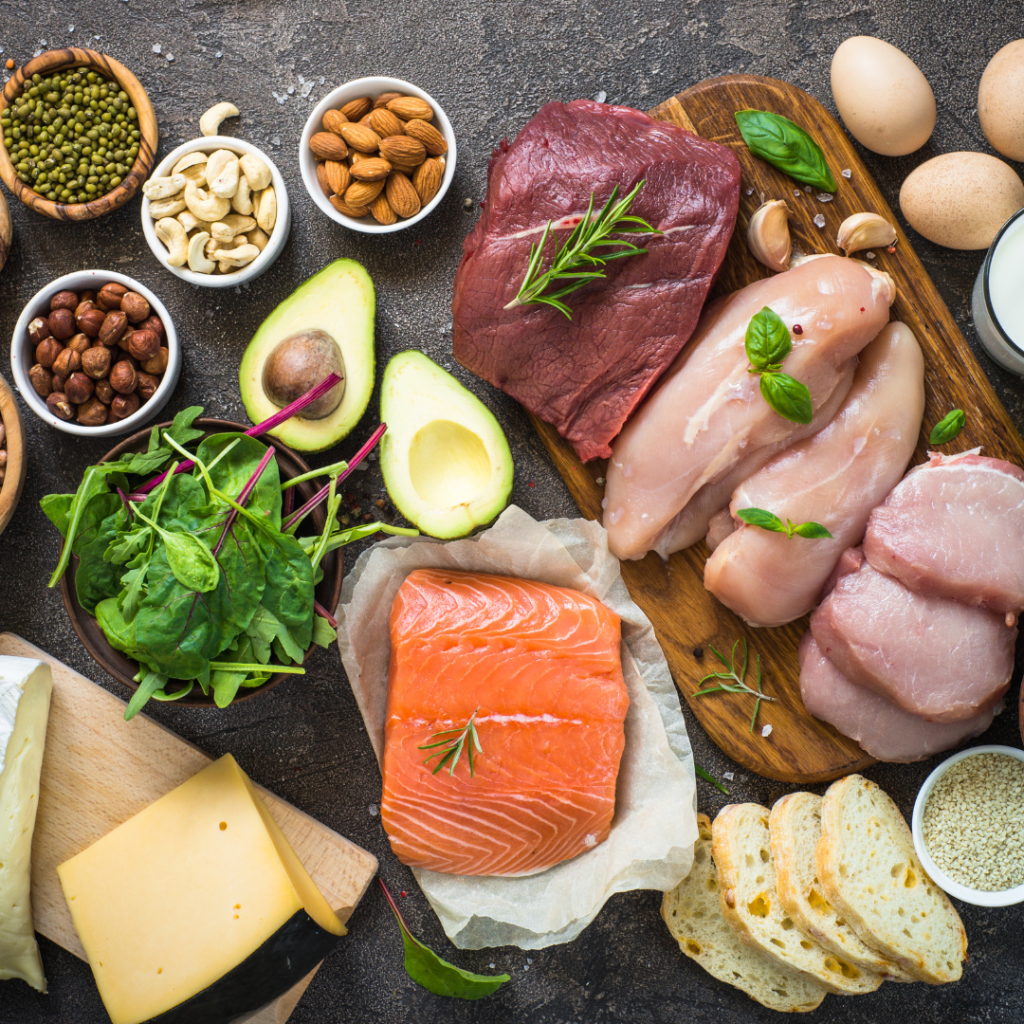
Proteins are large molecules that are essential for life. They are made up of long chains of amino acids, which are critical components in the structure and function of all living cells.
Proteins play many important roles in the body, such as providing structure to muscle and skin cells, aiding in digestion and metabolic pathways, transporting substances throughout the body, regulating hormones and enzymes, performing cell signaling, and protecting against viruses and bacteria.
What Does Protein Do?
Runners should consume protein the night before a long run due to its numerous performance-enhancing benefits.
Ensuring adequate protein intake is essential for optimal muscle function, recovery, and overall health, which ultimately contributes to a more successful running session.
Here, we explore the reasons behind this recommendation in greater detail, focusing on the specific physiological and performance-related benefits of dietary protein for endurance athletes.
Consuming protein provides the body with essential amino acids, which are the building blocks of muscles, tendons, and ligaments.
As running stresses these tissues during prolonged sessions, adequate protein intake supports their repair and strengthens the musculoskeletal system, minimizing the risk of injury.
Moreover, protein helps to prevent the breakdown of muscle tissue – an unwanted side effect that could otherwise compromise a runner’s performance.
Protein consumption supports immune system function, promoting overall health and well-being.
Research indicates that endurance athletes may experience a temporary suppression of immune function following extended periods of running.
When combined with carbohydrates, protein may help reduce inflammation and protect against illness, enabling athletes to maintain consistent training schedules and facilitating better recovery.
Additionally, consuming protein the night before a long run can help regulate the body’s glycogen stores.
Glycogen serves as the primary fuel source for endurance activities such as running, and protein consumption can aid in preserving these stores, preventing premature depletion during exercise.
This becomes especially crucial when participants embark on high-intensity training sessions or endurance events that last for several hours.
One particular feature of protein that sets it apart is its ability to induce satiety – the feeling of fullness following food consumption.
Including protein in a pre-run meal may help runners to feel satisfied for longer periods, reducing the likelihood of overeating, and ensuring a stable blood sugar profile.
This stability allows the athlete to maintain optimal energy levels and focus during their long run.
Incorporating high-quality protein into a runner’s diet may also positively impact their running economy – a measure of the energy required to maintain a certain pace.
An enhanced running economy enables athletes to run more efficiently, preserving energy for the latter stages of their workout or race.
Foods that contain high amounts of protein are:
- Egg: Eggs are an excellent source of high-quality protein, containing all nine essential amino acids. One large egg contains 6 grams of complete protein and is packed with important vitamins and minerals such as choline, vitamin A, B12, selenium, and riboflavin.
- Almonds: Almonds are a nutrient-dense snack that offer a good source of protein—a single ounce (about 23 almonds) contain 6 grams of protein along with essential fatty acids, fiber, magnesium, and antioxidants.
- Greek Yogurt: Greek yogurt is an excellent source of complete protein because it contains all nine essential amino acids needed for muscle growth and repair; it also provides calcium and probiotics for gut health. One container typically offers 17-20 grams of protein per serving.
- Chicken Breast: Chicken breast is one of the most popular sources of lean protein available; 3 ounces provide 26 grams of protein. It’s also a great source of niacin, phosphorus, and Vitamin B6 which are important for energy production and enzyme function in the body.
- Salmon: Salmon is rich in omega-3 fatty acids which offers anti-inflammatory benefits; it’s also loaded with high-quality proteins that provide all essential amino acids the body needs to build muscle tissue—a 3 ounce serving contains 18 grams of complete protein.
Fats
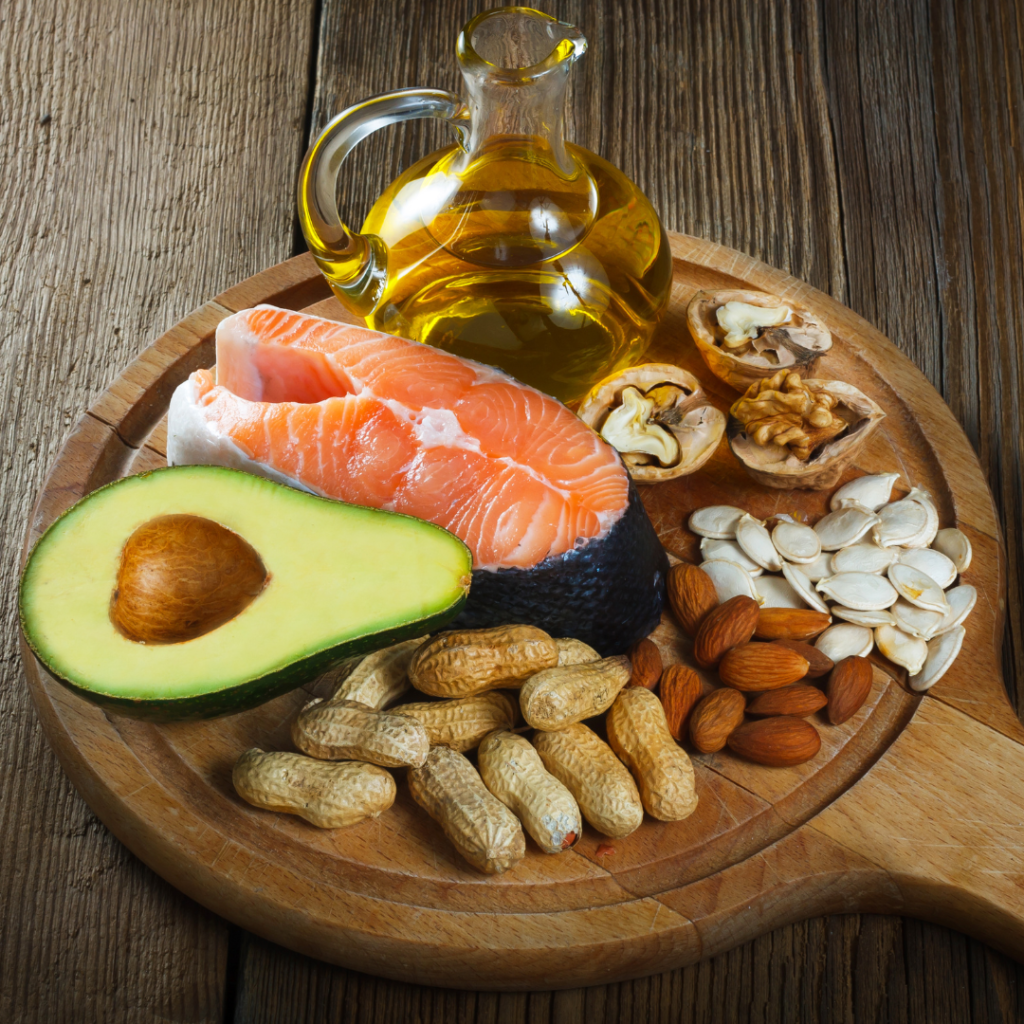
Fats are a type of nutrient that are essential for good health.
They provide energy and help the body absorb vitamins and minerals.
Fats also play a role in hormone production, insulation, cell signaling, and inflammation.
Dietary fats come in a variety of forms such as saturated, monounsaturated, and polyunsaturated.
Saturated fats come primarily from animal products such as lard, butter, and cheese.
Monounsaturated and polyunsaturated fats are found in plant-based sources like avocados, olives, sunflower seeds, nuts, nut butters and oils like canola oil or olive oil.
Polyunsaturated fats include omega-3 fatty acids which are important for brain health.
Eating the right types of fat in moderation is an important part of maintaining overall health.
Reasons You Should Eat Fats Before Running
Runners should consume an adequate amount of healthy fats the night before embarking on a long run due to several key reasons, which are scientifically based on enhancing their overall performance, endurance, and recovery.
Incorporating fats as part of their pre-run meal helps ensure the body has a sufficient energy reserve.
During a long-distance run, the body primarily relies on carbohydrates as its main energy source.
However, when carbohydrates are depleted, the metabolic system utilizes fats as a secondary fuel source, allowing runners to maintain their pace and avoid hitting the infamous “wall.”
Consuming healthy fats, such as those found in avocados, nuts, and olive oil, can boost these energy reserves, enabling runners to cover longer distances more efficiently.
In addition to providing sustained energy, fats play a crucial role in nutrient absorption.
Several essential vitamins, like A, D, E, and K, are fat-soluble, meaning the body can only absorb them through the presence of dietary fats.
These vitamins are vital for runners, as they help maintain proper immune function, support bone health, and reduce inflammation.
Consuming an optimal amount of fats the night before a long run ensures these vitamins will be absorbed and utilized efficiently, ultimately contributing to the runner’s overall health and performance.
Healthy fats serve as a valuable source of essential fatty acids, specifically omega-3 and omega-6 fatty acids.
These fatty acids are crucial for runners due to their anti-inflammatory properties and ability to repair damaged tissues.
Long-distance running can cause substantial stress and inflammation within the body, making it even more vital for runners to consume good fats as a proactive measure.
This will not only enhance their post-run recovery but also mitigate any potential injuries during the run.
Incorporating fats into the pre-run meal helps regulate blood sugar levels by slowing down the absorption of carbohydrates.
Consuming fats alongside carbohydrate-rich foods leads to steady energy release throughout the run, ultimately enabling runners to maintain consistent performance levels and avoid sudden drops in energy.
Vitamins And Minerals
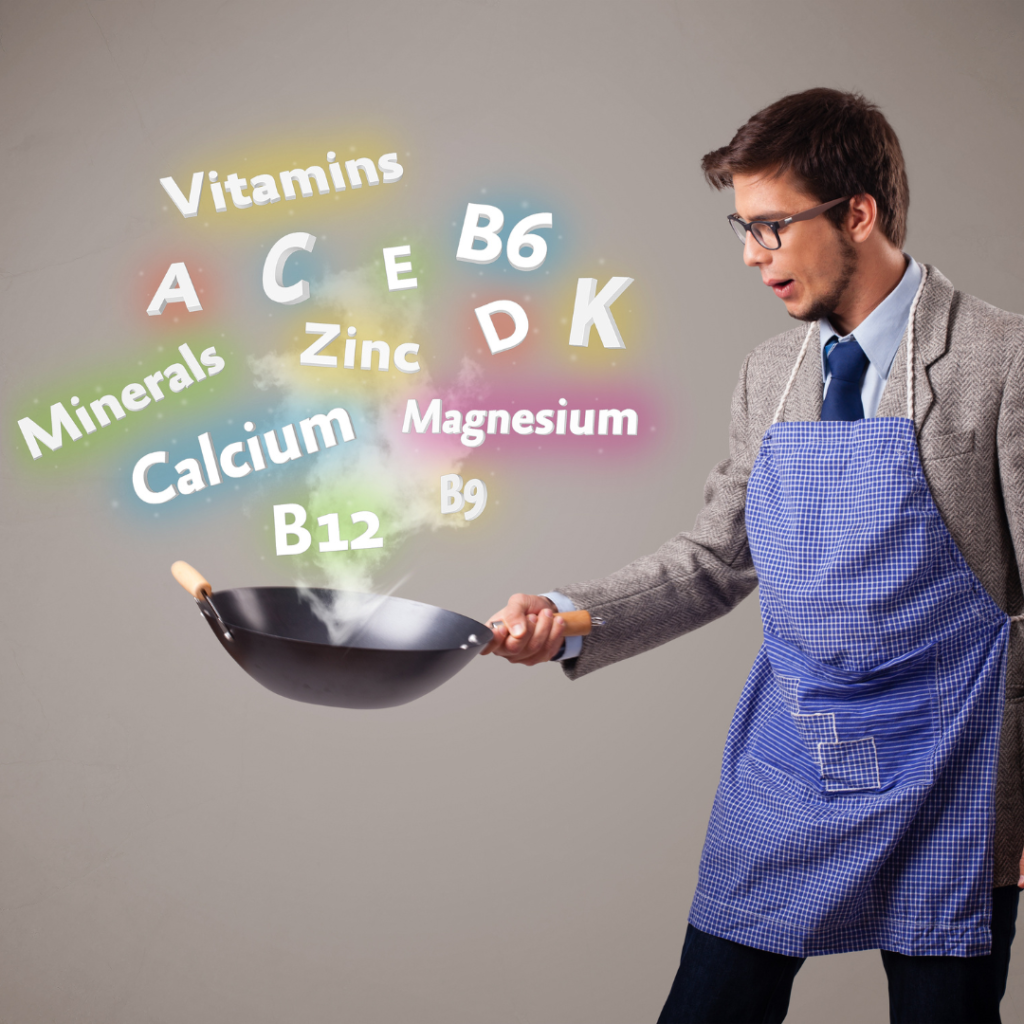
Vitamins and minerals are essential micronutrients required by the human body to perform vital functions, ensuring overall health and well-being.
Unlike macronutrients such as carbohydrates, proteins, and fats, micronutrients are needed in smaller quantities but are indispensable for maintaining optimal physiological functions.
Vitamins are organic compounds and can be classified into two major categories: fat-soluble and water-soluble.
Fat-soluble vitamins include A, D, E, and K, which are stored in our body’s fatty tissues and liver for later use.
These vitamins play crucial roles in vision, immune system function, bone health, and blood clotting.
Water-soluble vitamins, such as C and the B-complex group, dissolve in water and are readily excreted from the body.
These vitamins are vital for energy production, cell repair, iron absorption, and overall immunity.
Minerals are inorganic elements derived from various sources, such as soil, water, and rocks.
They are categorized as macro-minerals and trace minerals. Macro-minerals, like calcium, magnesium, and potassium, are required in larger amounts and play significant roles in maintaining bone density, regulating fluid balance, and supporting muscle function.
Trace minerals, such as iron, zinc, and selenium, are needed in smaller quantities but are no less essential for crucial body functions, including cognitive development, oxygen transport, and enzyme activity.
How Are Vitamins And Minerals Beneficial For Runners
Vitamins and minerals play a crucial role in ensuring optimal health and performance for runners by supporting various bodily functions, promoting recovery, and preventing injury.
These essential nutrients work in tandem with other components like proteins, fats, and carbohydrates to maintain a healthy balance and sustain energy levels for long-distance runs, sprints, or even regular jogging.
For instance, B-vitamins such as B6, B12, and folic acid are indispensable for runners as they assist in the metabolism of carbohydrates, proteins, and fats.
They also aid in producing red blood cells and regulating nervous system functions.
An inadequate intake of B-vitamins can result in poor performance, fatigue, and potential injuries.
Vitamin D is another essential vitamin that helps in calcium absorption, thereby promoting bone health and reducing the risk of stress fractures – a common injury faced by runners.
Moreover, Vitamin D supports muscle function and immune response, ensuring optimal performance and recovery for athletes.
Antioxidant vitamins, such as Vitamin C and E, play a critical role in neutralizing the effects of free radicals generated during intense exercise.
These free radicals can potentially cause cellular damage and impair recovery.
By scavenging free radicals, these antioxidant vitamins protect runners from oxidative stress, inflammation, and delayed onset muscle soreness (DOMS).
Minerals like calcium, magnesium, iron, and zinc are also of paramount importance for runners.
Calcium, as previously mentioned, ensures stronger bones and aids in muscle contraction, which ultimately leads to better performance.
Magnesium is vital for maintaining a regular heartbeat, nerve function, and muscle relaxation, which reduces the chances of cramps and muscle fatigue.
Iron is responsible for delivering oxygen to the muscles through hemoglobin in red blood cells.
It is crucial for maintaining high energy and endurance levels during a run.
A deficiency in iron could result in anemia, characterized by extreme fatigue and decreased performance.
Zinc, on the other hand, supports the immune system and helps in cell growth and repair processes.
It is particularly important for runners as vigorous exercise might slightly weaken the immune system, making athletes prone to infections.
What To Eat The Night Before A Long Run Tips

Opt for easily digestible carbohydrates
Consuming high-quality carbohydrates the night before a long run helps to adequately store glycogen in your muscles and liver.
This stored glycogen serves as an efficient energy source during a long run.
Examples of easily digestible carbs include pasta, rice, potatoes, and quinoa.
Maintain a balance of macronutrients
In addition to carbohydrates, protein and healthy fats are crucial to properly fuel your body for endurance activities.
Protein helps with muscle recovery and repair, while healthy fats can provide a sustained energy source.
Aim for a meal that consists of roughly 60% carbohydrates, 20% protein, and 20% fats.
Avoid excessive fiber intake
Eating a large amount of fiber before a long run can cause gastrointestinal distress and negatively impact your performance.
Limit your consumption of high-fiber foods such as legumes, cruciferous vegetables, and whole grains the night before a run.
Hydrate adequately
Proper hydration is essential for optimal performance and preventing dehydration during a long run.
Make a conscious effort to drink water and electrolyte-infused beverages throughout the day and evening leading up to your run.
Experiment to find your unique pre-run meal
Each individual has different digestive tolerances and food preferences.
To determine the best pre-run meal for you, test different carbohydrate-protein-fat ratios and specific meal choices during your training period.
This will help you identify what works best for your body and minimize the likelihood of gastrointestinal issues during your run.
Time your dinner strategically
Eat your pre-run dinner early enough (approximately 2-4 hours before bedtime) to allow your body to digest the meal and prevent any potential stomach issues during your run.
This also ensures that you have stored up sufficient glycogen in your muscles, providing you with optimal energy levels for your activity.
Prioritize lean protein sources
Choose lean proteins such as chicken, turkey, or tofu in your pre-run dinner to facilitate muscle recovery and minimize inflammation.
These lean protein sources are relatively easy to digest, reducing the chances of any potential stomach discomfort during your run.
5 Easy Meals To Eat Before Your Run
1. Baked Salmon with Roasted Vegetables:
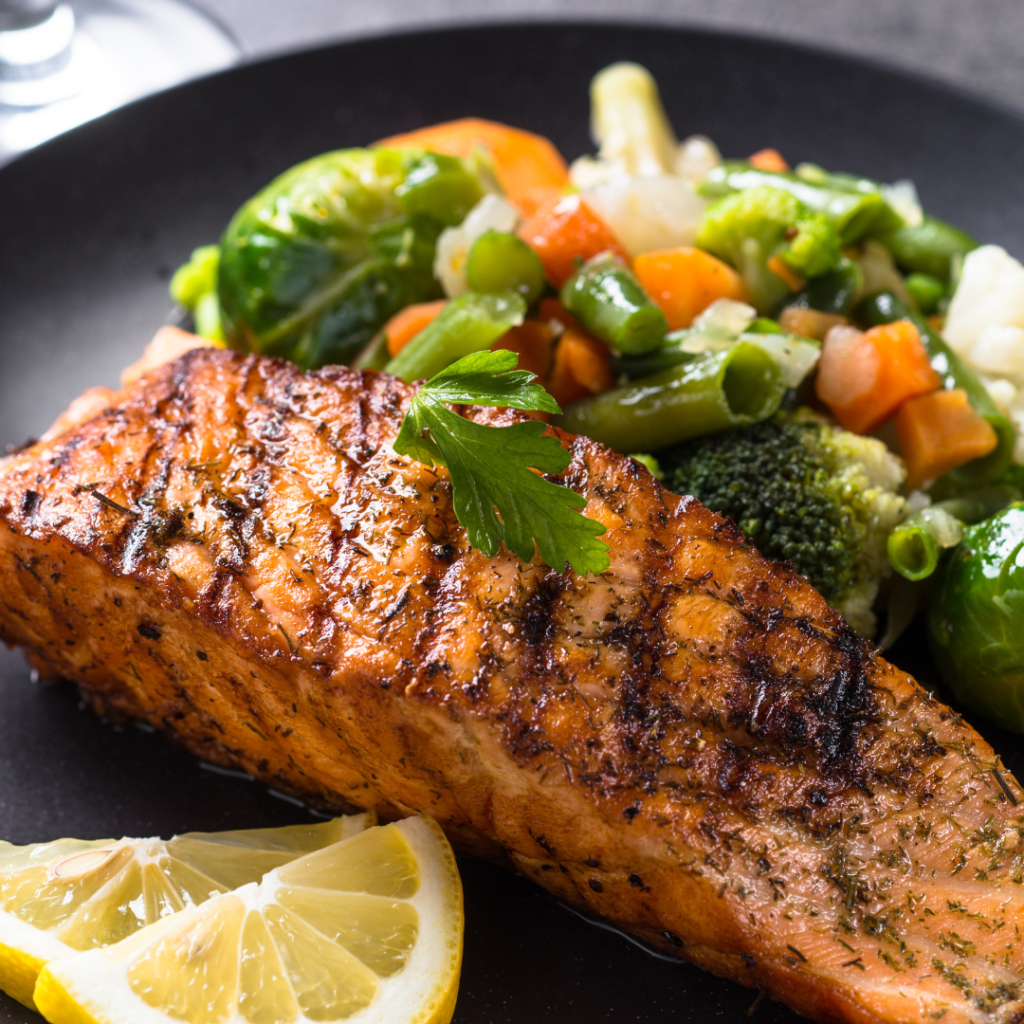
This is a healthy and delicious meal that contains carbohydrates, vitamins, minerals, lean protein, and healthy fats.
The salmon provides an excellent source of lean protein and healthy omega-3 fatty acids.
It also contains a good amount of Vitamin D, which helps regulate the immune system and aids in absorption of calcium.
Combining the salmon with roasted vegetables such as peppers, onions, carrots, potatoes and garlic provides a good balance of complex carbohydrates as well as Vitamins A & C.
Roasting the vegetables helps to bring out their natural sweetness while adding flavor to the dish.
2. Whole Wheat Pasta Primavera:
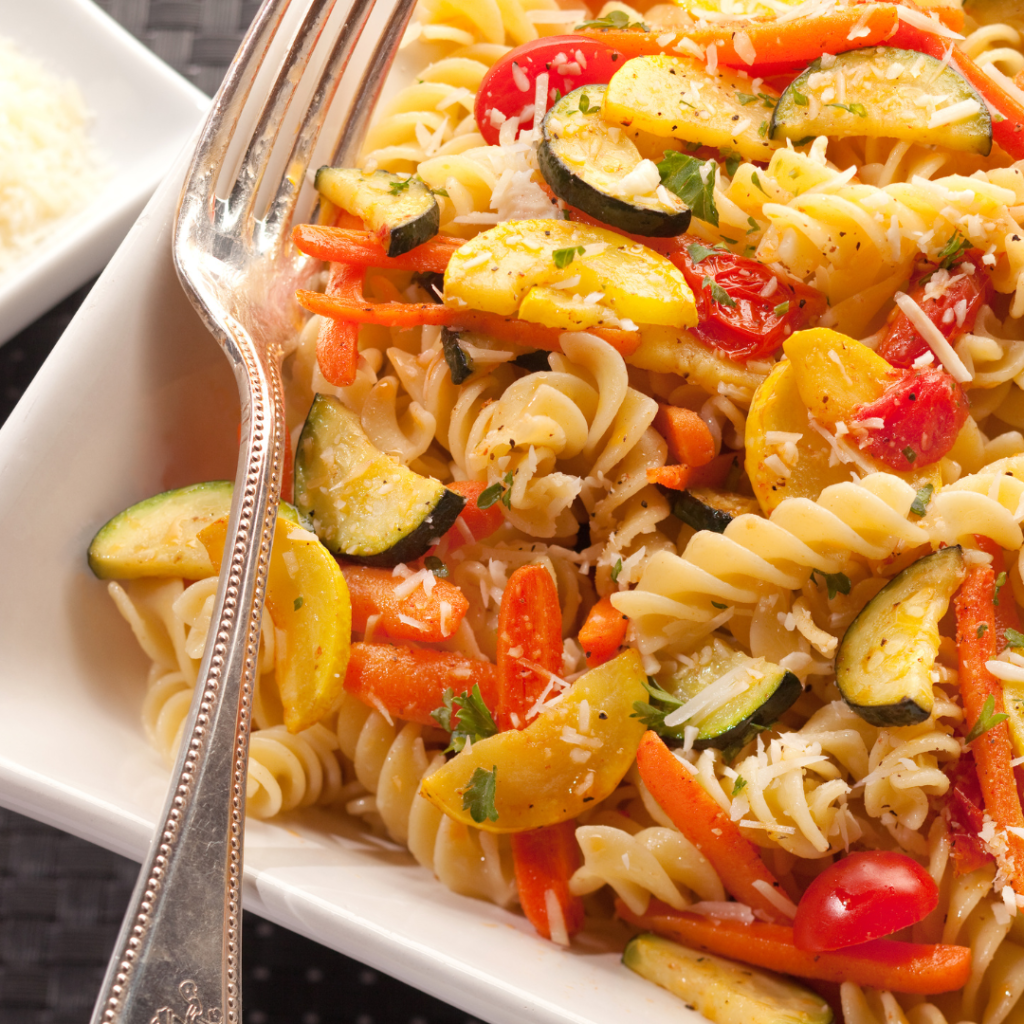
This meal is both nutritious and delicious.
It is packed with complex carbohydrates from whole wheat pasta combined with plenty of vitamins and minerals from the fresh veggies added to it such as tomatoes, bell peppers, mushrooms and broccoli.
To add lean protein top this dish off with grilled chicken or shrimp for added flavor and nutrition benefits including essential amino acids for muscle growth and repair.
For added healthy fats you can sprinkle grated parmesan cheese on top for a cheesy finish.
3. Quinoa Bowls:
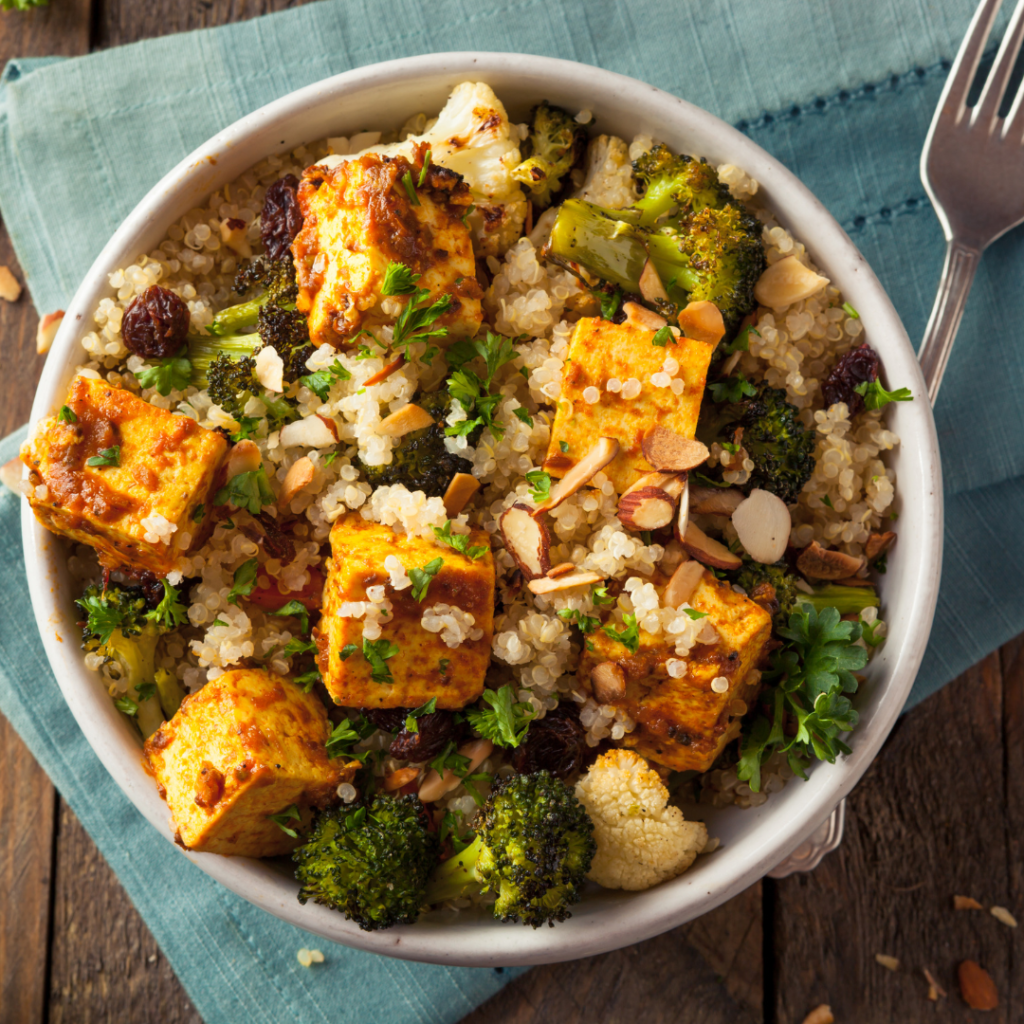
This easy meal consists of quinoa which is loaded with high quality proteins containing all nine essential amino acids that are important for growth and repair among other things.
In addition quinoa is also packed with complex carbs providing energy throughout your day as well as essential vitamins like Vitamin E and B vitamins along with several minerals such magnesium for example which plays an important role in energy production in our bodies.
To round out this meal top it off with diced avocado providing healthy monounsaturated fatty acids which support heart health along with other nutritionally dense ingredients like cherry tomatoes, black beans or roasted sweet potato cubes to make it even more nutritious!
4. Turkey Burgers:
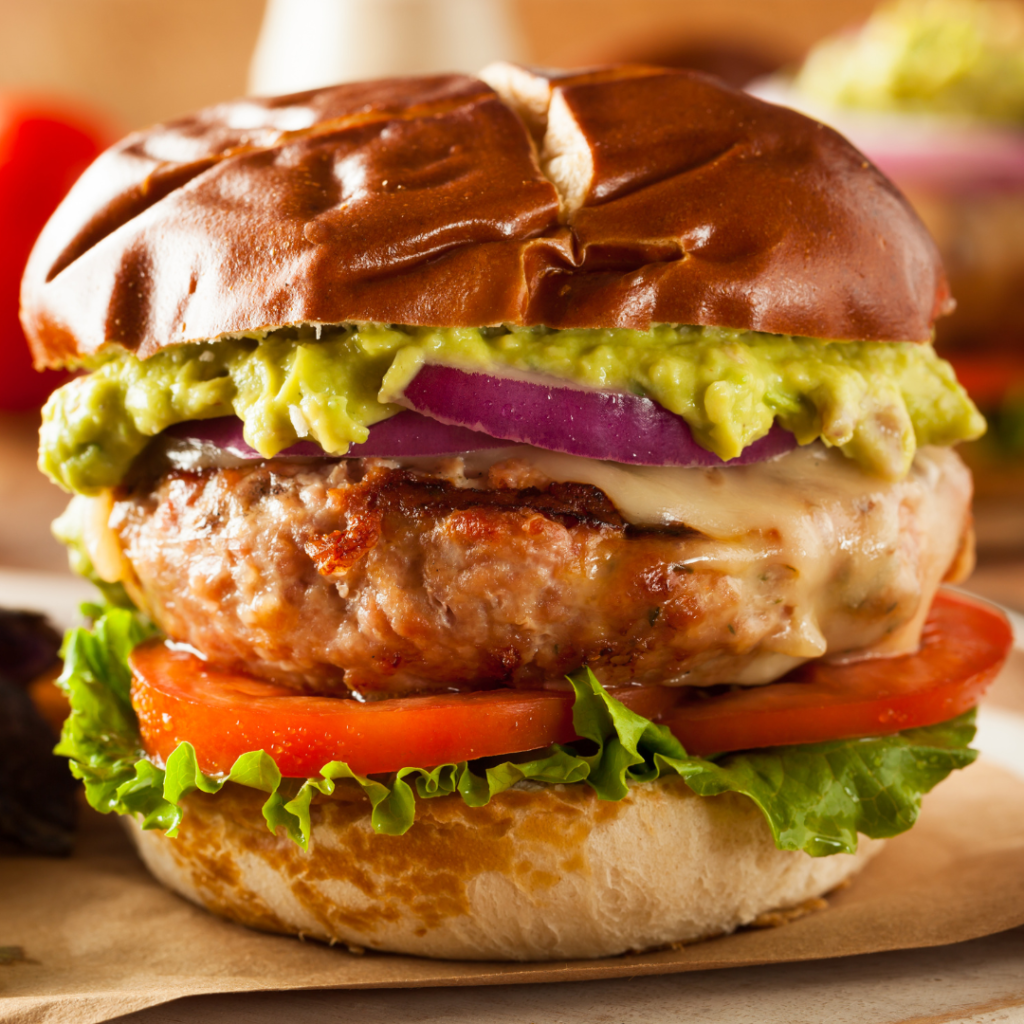
Lean ground turkey provides plenty of protein while also being low in fat making it ideal when trying to eat healthier meals without sacrificing taste or satisfaction levels too much!
Combined with whole grain buns you get some complex carbohydrates along with fiber to help keep you full longer while throwing in some fresh sliced tomatoes or lettuce on top adds in some essential vitamins like vitamin K found in lettuce or lycopene found in tomatoes giving this burger a complete nutritional profile!
5. Egg White Omelet:

Egg whites are an excellent source of high quality protein that contain all 9 essential amino acids that our bodies need but lack the saturated fat found egg yolks so they’re great option when trying to eat healthier meals while still getting enough nutrients into our diets.
Double up on protein by adding some lean ham slices plus toss in some chopped up veggies like spinach, bell peppers mushrooms etc,to give you an omelet filled not only delicious flavors but loads of necessary vitamins plus minerals like iron found in spinach along with dietary fiber all rolled into one meal!
Conclusion
It is important to make sure you are fueling your body with enough nutrients to get you through the next day.
Eating carbs, protein, fat and vitamins and minerals can ensure a stronger and more efficient performance.
See, eating well before a long run isn’t overwhelming as there are plenty of meals featuring all of these essential components.
With this in mind, why not give one of the five easy meals above a try?
Not only will your taste buds be grateful for the deliciousness, but come race day-your body won’t fail you!
So whether it’s pasta loaded with veggies or an egg casserole-trust us-your midnight snack won’t disappoint!
